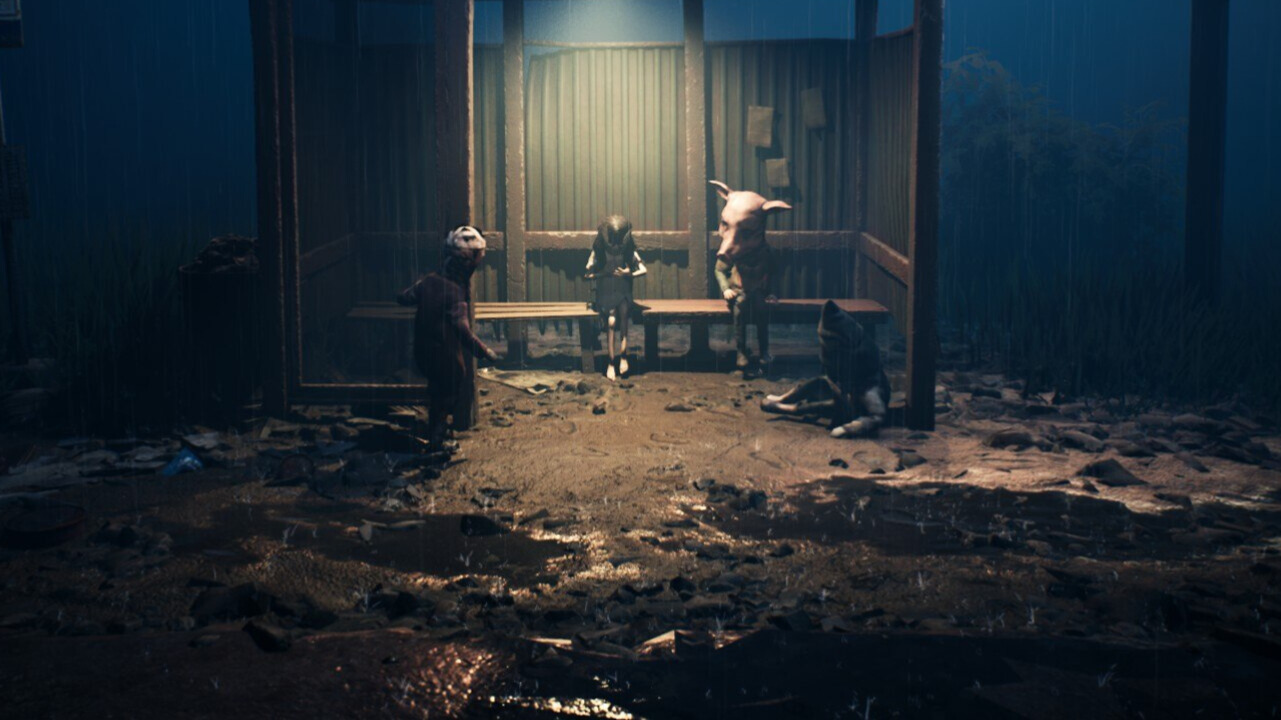Skateboarding games are back, here's why they're better than ever
"We’re in the midst of a new renaissance in skate games."
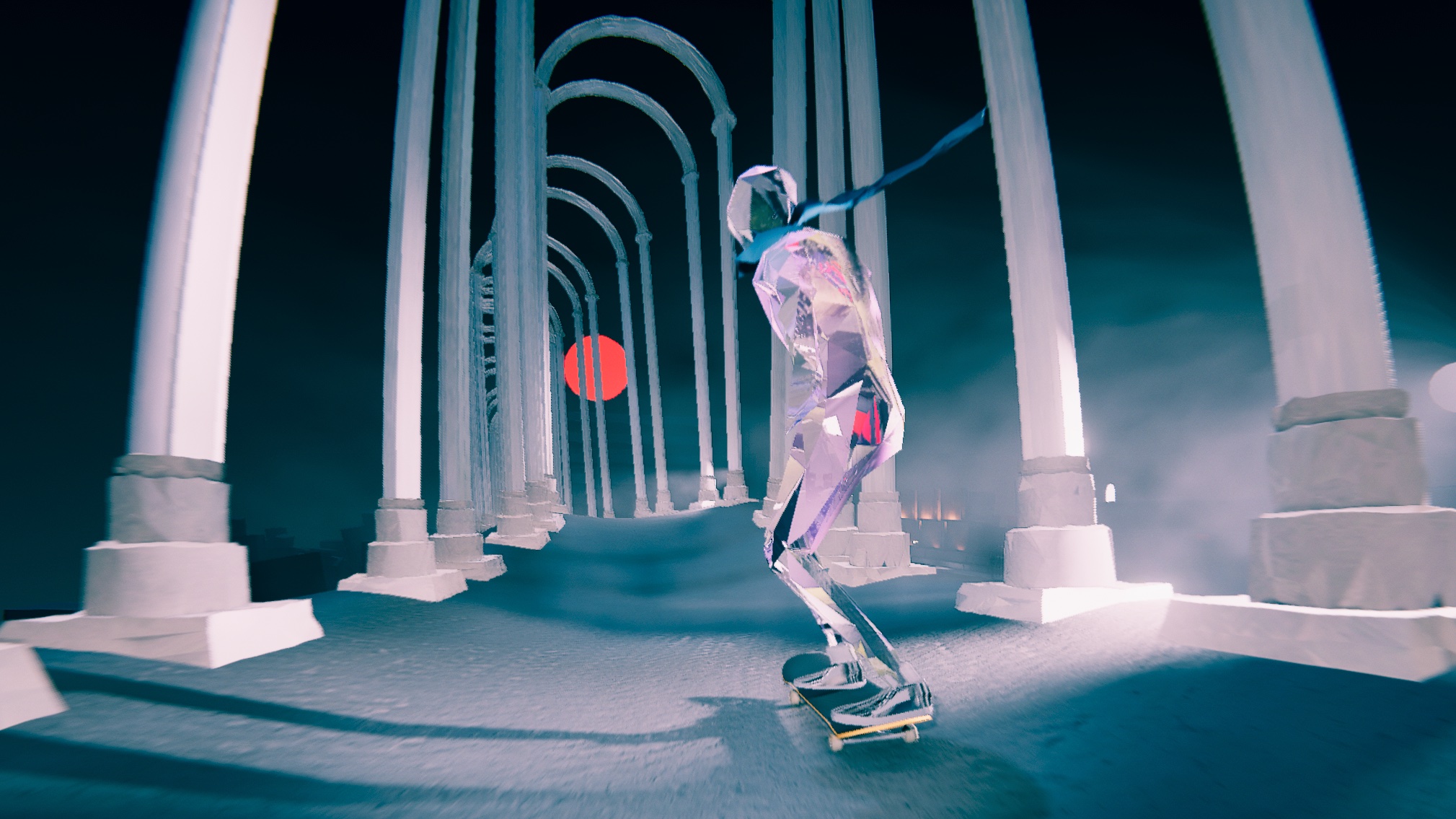
Keep up to date with the most important stories and the best deals, as picked by the PC Gamer team.
You are now subscribed
Your newsletter sign-up was successful
Want to add more newsletters?

Every Friday
GamesRadar+
Your weekly update on everything you could ever want to know about the games you already love, games we know you're going to love in the near future, and tales from the communities that surround them.

Every Thursday
GTA 6 O'clock
Our special GTA 6 newsletter, with breaking news, insider info, and rumor analysis from the award-winning GTA 6 O'clock experts.

Every Friday
Knowledge
From the creators of Edge: A weekly videogame industry newsletter with analysis from expert writers, guidance from professionals, and insight into what's on the horizon.

Every Thursday
The Setup
Hardware nerds unite, sign up to our free tech newsletter for a weekly digest of the hottest new tech, the latest gadgets on the test bench, and much more.

Every Wednesday
Switch 2 Spotlight
Sign up to our new Switch 2 newsletter, where we bring you the latest talking points on Nintendo's new console each week, bring you up to date on the news, and recommend what games to play.

Every Saturday
The Watchlist
Subscribe for a weekly digest of the movie and TV news that matters, direct to your inbox. From first-look trailers, interviews, reviews and explainers, we've got you covered.

Once a month
SFX
Get sneak previews, exclusive competitions and details of special events each month!
Skateboarding is back. 2020 didn't just see a whole lotta people pick up a board for the first time (myself included)—it also saw the return of a long-dormant titan of skating video games, Tony Hawk's Pro Skater 1+2. But as brilliant as Tony's return was, there's a whole new crew running the virtual parks these days.
As with the real-world skate scene, Tony Hawk casts an incomparable shadow over skateboarding games. Pro Skater's punk rock lines dominated the early 2000s, and got a lotta kids picking up their first boards. But those kids are all grown up, with some now throwing down their own unique shots at the sport.
"I’ve always loved skating, but as a kid I didn’t have much self-esteem to actually skate outside of Tony Hawk’s Pro Skater on the PS1," said Sam Eng, developer of the dreamlike Skate Story. "Nowadays I skate as my primary transportation around the city. I’m still not very good, but I do spend a lot of time on the board, and I can do a few basic tricks."
Eng's own take on skating wouldn't follow THPS, though. Instead, Skate Story echoes games like EA's Skate, or more recent spiritual successors like Session and Skater XL. With low angles and analogue controls, they're games that attempt to capture the tactile feel of riding a board more than Tony Hawk's gravity-defying combos ever could.
"Skate Story is basically my fanart of skateboarding. There are so many distinct feelings I get when skating that I want to express, that I find difficult to explain. At its most basic, I love that feeling of flow. Feeling the gradient of textures between grit and glide. The feeling of smooth carving on a fresh, empty sidewalk. The roar of blasting over a metal subway grate. The subtle differences between the 31 flavors of asphalt are a whole-body experience."
It's a side of skating I've increasingly come to appreciate since picking up my own board last year—throwing myself at a ledge grind or flatground trick at the local spot, taking that approach to Session when the miserable Scottish weather forces me off the streets.
"It feels like discovering fire," Eng adds. "Yes, fire is dangerous. But, pushing through the fire, hardening yourself from the flames, learning to cultivate that fire. That’s my favorite part of skateboarding."
Keep up to date with the most important stories and the best deals, as picked by the PC Gamer team.
Birds struggle to represent the technical side, but the movement stuff, they're capable of representing quite well.
Megan Fox
Still, the need for arcade shredding hasn't gone entirely. Skatebird developer Glass Bottom Games' Megan Fox tells me that the success of Tony Hawk's Pro Skater 1+2 shows there's still strong demand for good old fashioned combo-chaining antics. The difference being, of course, that the pros here are tiny, adorable birds.
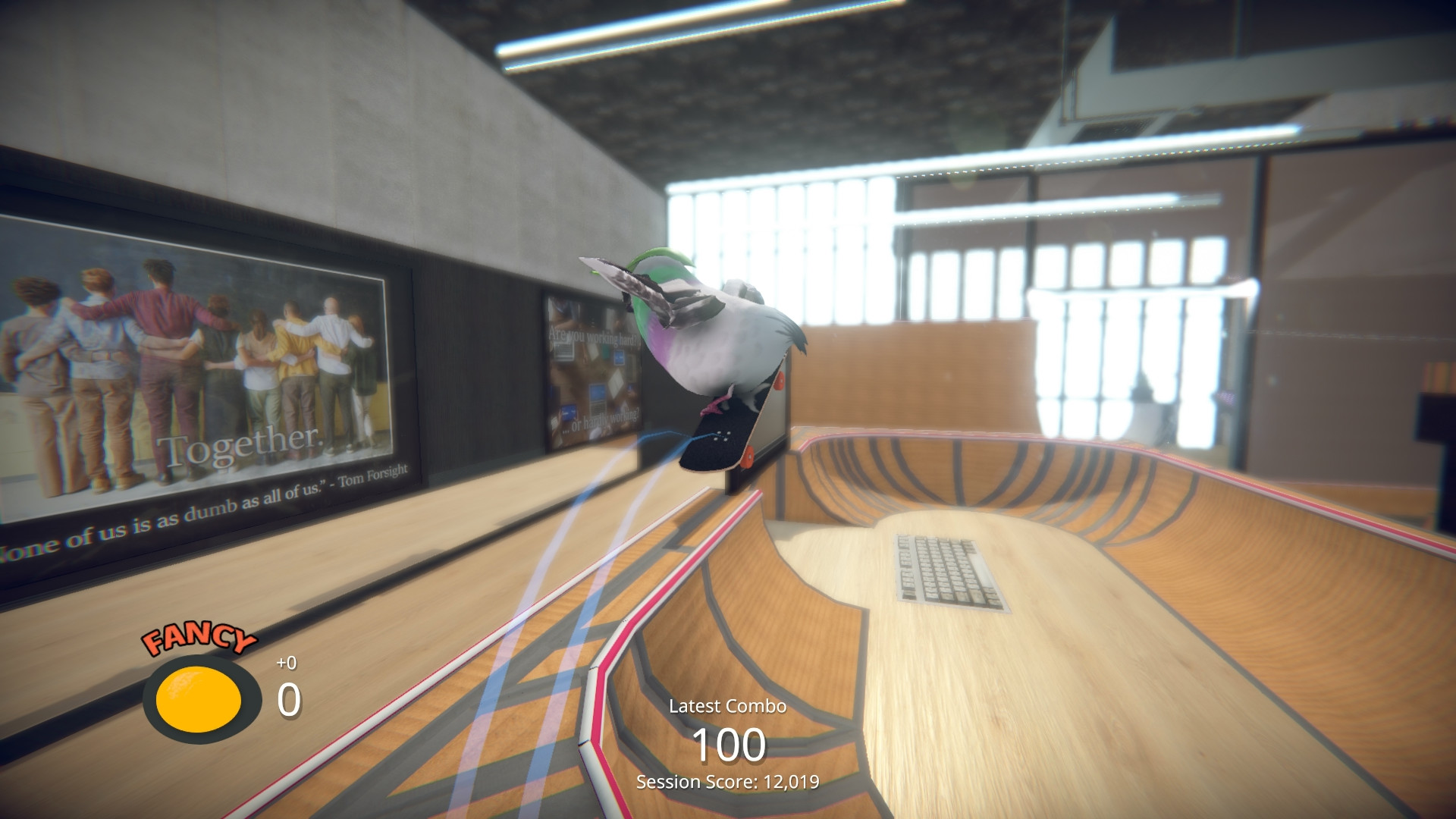
"Skate, Skater XL, etc. all form a line of being better sims that more accurately represent how a board moves and responds," says Fox. "Which is neat, but you lose some of the high-flying antics of THPS in the process, and the control schemes have gotten quite a bit more involved."
Skatebird might not capture the intricacies of trying to catch and land a kickflip with both feet. But like Pro Skater before it, Skatebird adores the momentum that comes with whipping a board around a park—even if that park is a few rolled-up newspapers and toilet roll halfpipes.
"Inertia, weight, the zip of dropping into a ramp and zooming out. Birds struggle to represent the technical side, but the movement stuff, they're capable of representing quite well."
If there's one side of skating the games industry has slept on, though, it's vert—a style of skating that focuses on stunting off towering halfpipes. It's fallen out of fashion since the '90s (probably due to the sheer terror of dropping in from a 10ft high ledge), but even Hawk's own games skipped over the fact that the Birdman was always more about pipes than parks.
That's something developer Paul Schnepf wants to fix with The Ramp—an almost toy-like half-pipe that hopes to capture the "incomparable flow and rhythm" of riding vert.
"While there are already awesome skateboarding games like EA’s Skate series or Skater XL and Session, all of them focus on street skateboarding. I’ve always wished for a game doing proper justice to how pumping vert really feels. This is what I want to capture in my game, to give people a chance to experience what is so magical about skating vert themselves."
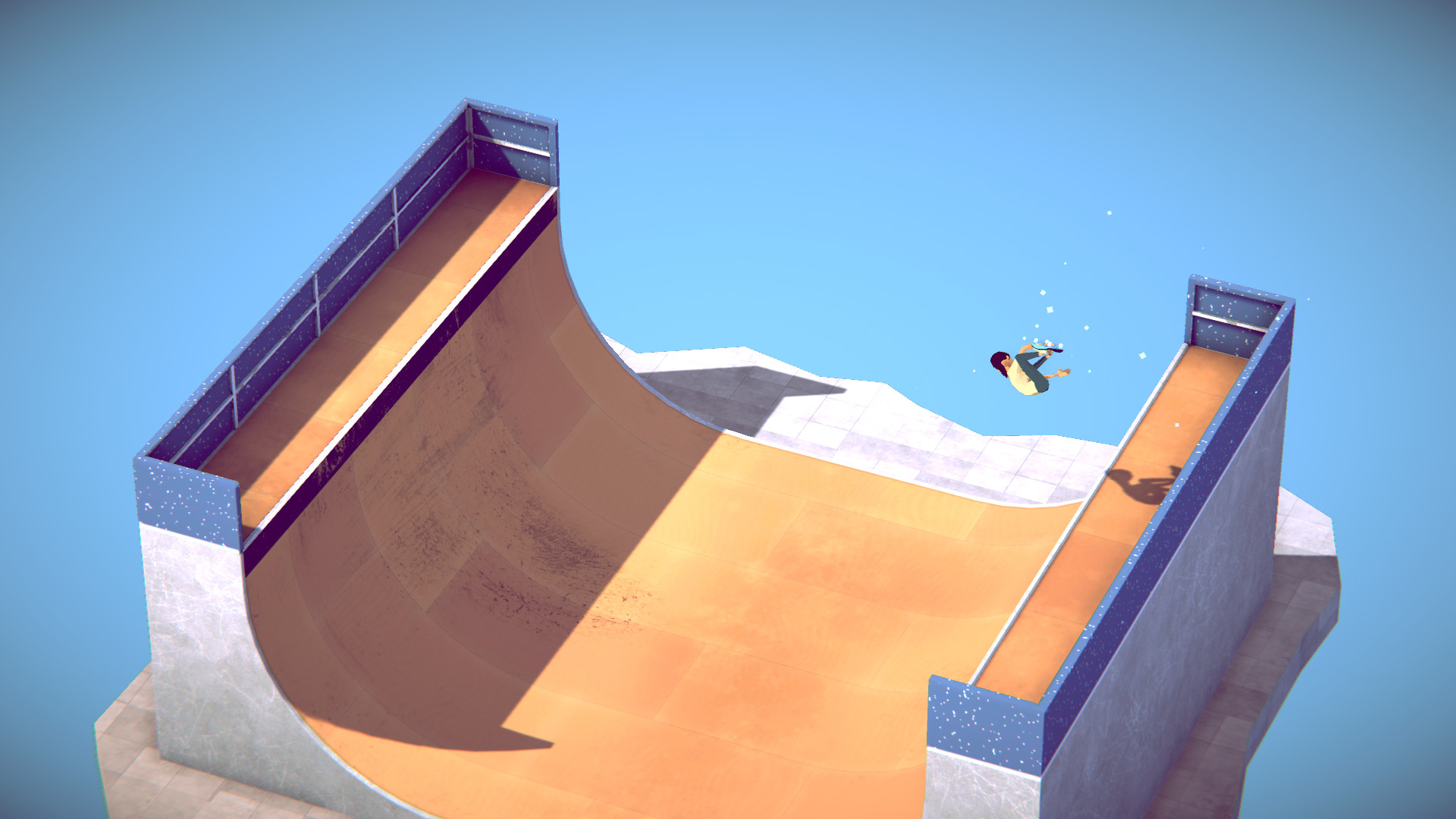
At one point, Pro Skater might've felt like the definitive way to map skating to videogames. But with more developers shredding it up than ever before, we're seeing a staggering diversity in how games can approach skating. Hell, we've barely even touched Ollie Ollie's stellar side-scrolling lines.
These games also reflect a broader shift that's happened across skateboarding culture at large. 20 years on, Pro Skater feels like a time capsule of a moment where skating was perceived as loud, angry, and so inseparable from Jackass that later entries essentially became Bam Margera gross-out vehicles.
But in recent years, the scene has become more accessible, more popular, and more inclusive than ever before. As New Yorker Eng puts it, cities are becoming more "tolerant" to skateboarders, and are less likely to chase them out of street spots.
"As a kid my perception was that skateboarding was “extreme sports” possibly only for delinquents and extroverts who steal things from stores. But I feel like especially now, it’s so varied, so personal, that it is extremely hard to pin down. It feels more welcoming."
I see dads skateboarding to work in formal wear on electric longboards and a whole new generation of kids getting excited about skateboarding
Andrew Schimmel
Where skating games used to uniformly look and sound like the cover of Green Day's Dookie, they're now scoring cute skatebirds with chillhop beats or (in Eng's case) sending crystalling pros to hell with experimental indie-pop.
"We’re in the midst of a new renaissance in skate games with remasters, indies and newly announced titles coming out all the time," says Skate City producer Andrew Schimmel. "I see dads skateboarding to work in formal wear on electric longboards and a whole new generation of kids getting excited about skateboarding video games again. It’s terrific to see, and we’re excited for what the future holds both for the sport and the video game space."
Skate Story, in particular, announced itself with such a haunting, otherworldly aesthetic that I was out hunting for a board before the trailer even wrapped. It's a bold departure anything we've ever seen in games—but deeply close to Eng's own relationship with skating.
"I grew up in downtown NYC, so there wasn’t much true nature around. But the night city can feel like a beautiful natural world to me, in the way I imagine what others may feel in forests and on hiking trails."
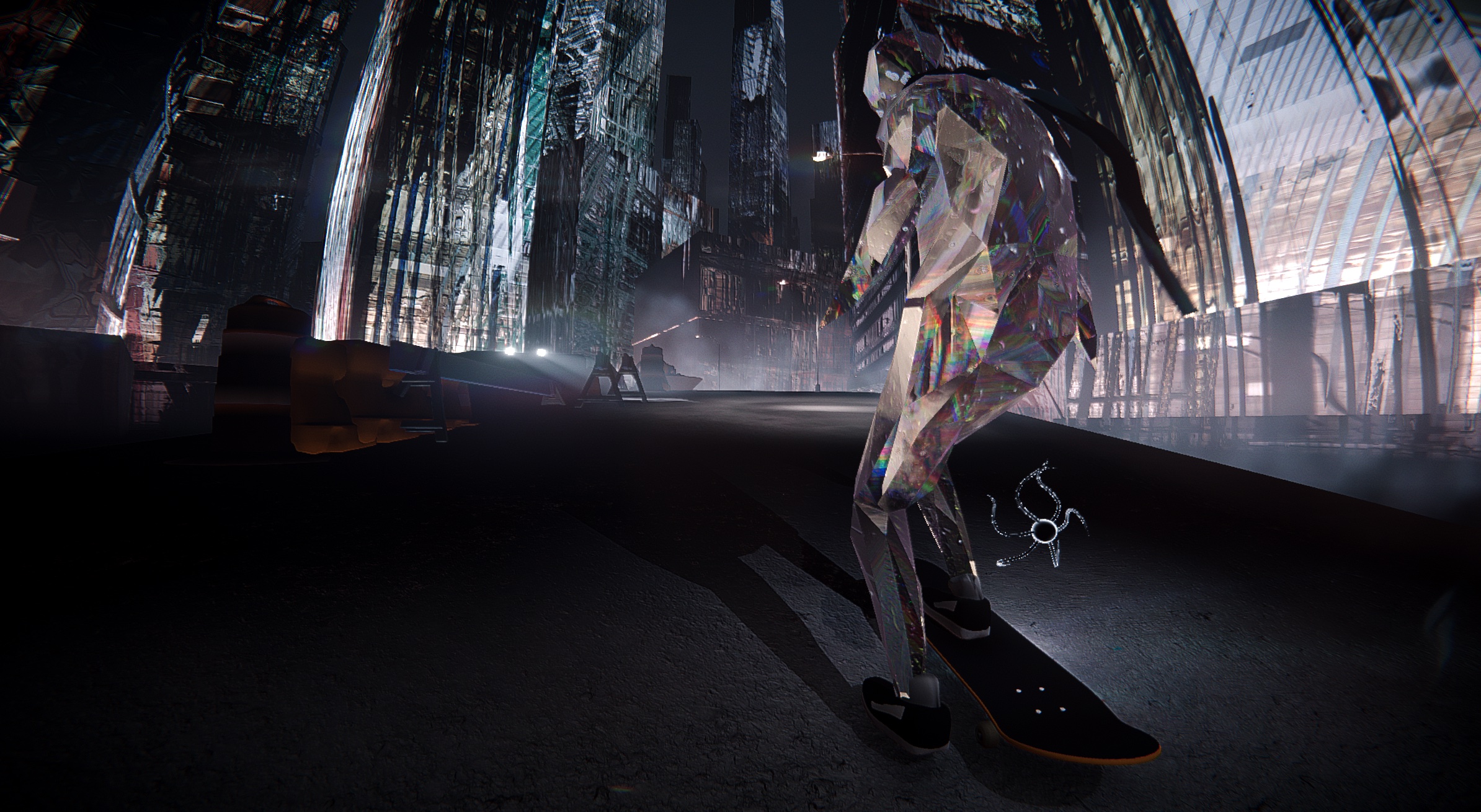
"When you’re skating during an infinite night, you become acutely aware of a special type of ambience that sweats from the concrete. The air is different here. The 24 hour deli is your new home, and every rat is cuter than the last. Your skateboard feels effortlessly loud. You can break yourself against the concrete if you want, or you can just glide through the lights.
"You just feel like you can pop a little trick. And you do, and you land it, and you just roll away clean, you might as well eat the moon."
Big publishers are finally starting to pay attention again. Last year's Tony Hawk's Pro Skater 1+2 was phenomenal, and I'm giddy at any rumour suggesting Activision may remaster 3 (the best one, don't @ me). After years of demand, EA also finally announced plans for a long-awaited Skate 4.
But skateboarding is now so many things for so many different people. Skating is personal, intimate, and often painful. It's also a public activity, with an element of showboating, and a wonderful, welcoming community of like-minded boarders. The democratisation of game development has let indies take their own skating styles to the screen—and, while I'm sure the next Pro Skater or Skate will be a blast, I've never been more excited to see smaller studios show us what skateboarding means to them.
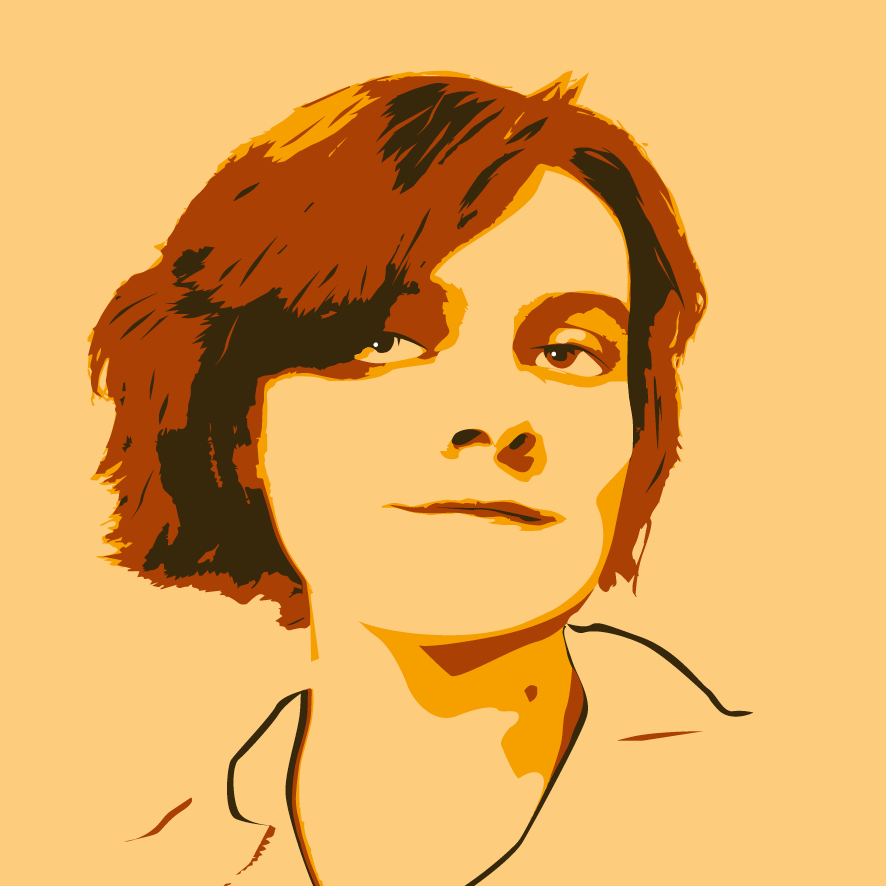
20 years ago, Nat played Jet Set Radio Future for the first time, and she's not stopped thinking about games since. Joining PC Gamer in 2020, she comes from three years of freelance reporting at Rock Paper Shotgun, Waypoint, VG247 and more. Embedded in the European indie scene and a part-time game developer herself, Nat is always looking for a new curiosity to scream about—whether it's the next best indie darling, or simply someone modding a Scotmid into Black Mesa. She also unofficially appears in Apex Legends under the pseudonym Horizon.

